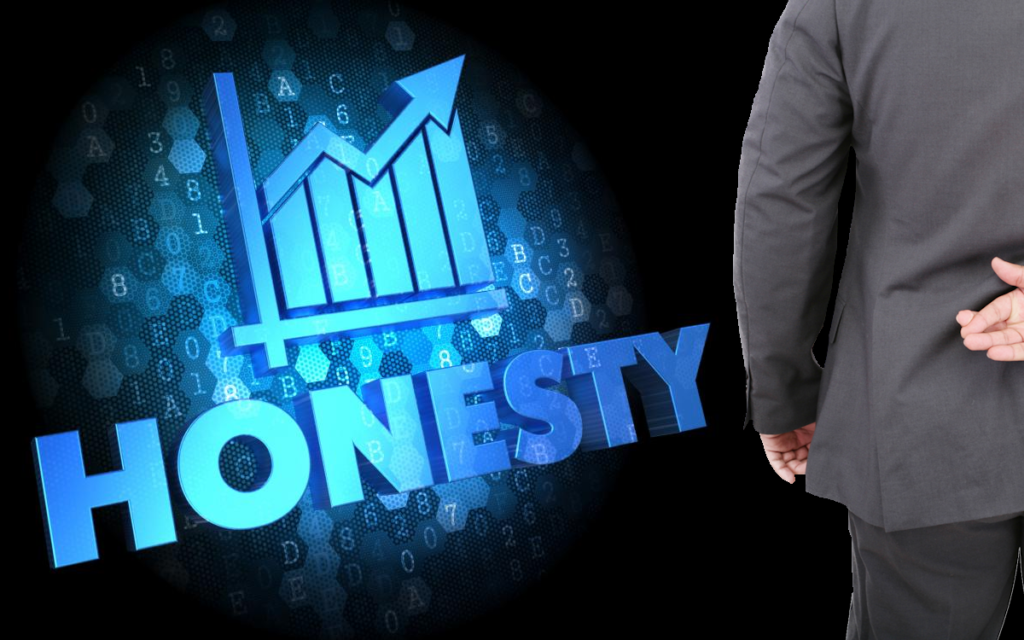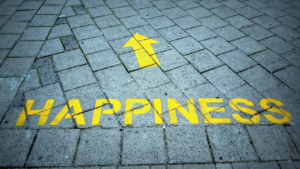Benjamin Franklin is often given credit for saying, “Honesty is the best policy.” The saying, however, is much older. In 1599, Sir Edwin Sandys of the Virginia Company (the company that funded the original Jamestown Settlement) wrote, “Our grosse conceipts, who think honestie the best policie.”[1] If honesty is truly the best policy, one wonders how dishonesty became the coin of the realm in American politics. It really shouldn’t surprise us, journalist Erica Pandey (@erica_pandey) reports, “The average American tells 11 lies a week.”[2] Of course, some of those lies are “little white lies.” The staff at the Grammarist notes, “Little white lies do not erode one’s integrity. A little white lie is a minor deception designed to save someone else’s feelings.”[3] One of my favorite commercials was Geico’s take on how “Honest Abe” Lincoln might have dealt with a little white lie situation.
The Grammarist staff observes, “‘Honesty is the best policy’ means that it is better to tell the truth than to tell a lie, no matter the consequences. Sometimes it is difficult to tell someone the truth because of the possible repercussions from telling that truth. Someone may think less of you if you tell the truth, you may lose a business deal, or you may even incur a fine or jail sentence. The proverb honesty is the best policy means it is better to admit one’s shortcomings and simply endure the consequences rather than live inauthentically or in fear of being found out. It is important to be honest and trustworthy and to demonstrate sincerity and truthfulness.” Pandey adds, “Lying less actually improves our mental and physical health.”
Honesty, health, and happiness
A decade ago, University of Notre Dame public relations specialist Brittany Collins wrote, “‘Pants on fire’ isn’t the only problem liars face. Research from the University of Notre Dame shows that when people managed to reduce their lies in given weeks across a 10-week study, they reported significantly improved physical and mental health in those same weeks.”[4] According to Collins, “Approximately half the participants were instructed to stop telling both major and minor lies for the duration of the 10-week study. The other half served as a control group that received no special instructions about lying. Both groups came to the laboratory weekly to complete health and relationship measures and to take a polygraph test assessing the number of major and white lies they had told during that week. … Over the course of 10 weeks, the link between less lying and better health was significantly stronger for participants in the no-lie group, the study found.”
Three years after the Notre Dame study, researchers from the University of California, Berkeley, and Harvard University, published a report about the negative effects dishonesty had on a person’s mental and physical health.[5] The researchers noted, “Research suggests that dishonest acts may be embodied. That is, when a person anticipates or acts dishonestly, the choice or behavior is not only reflected in the mind but also in the brain and body. While recent summaries of virtuous acts suggest that truth, altruism, and fairness confer a suite of psychological and health benefits to the benefactor, we suggest that lying, cheating, and stealing may do the opposite.” They go on to conclude, “On one hand, telling the truth, being altruistic, acting fairly and being generally other-oriented are virtues directly linked to a suite of positive health outcomes such as: better health and physical wellness, lower stress, decreased cellular aging, increased psychological well-being and longevity of life. On the other hand, lying, being selfish, cheating, and engaging in infidelity are associated with a suite of negative health outcomes such as elevated heart rate, increased blood pressure, vasoconstriction, elevated cortisol, and a significant depletion of the brain regions needed for appropriate emotional and physiological regulation.”
If these studies are accurate — and there is no reason to question their accuracy — it begs the question of why so many people see lying and deceit as a legitimate lifestyle choice. A study conducted by Tony Docan-Morgan, a Professor of Communication Studies at the University of Wisconsin–La Crosse, found people lie for a number of reasons.[6] Those reasons include: to avoid others (21%); as humor — i.e., as a joke or a prank (20%); to protect one’s self (14%); to impress or appear more favorable (13%); to protect another person (11%); for personal benefit or gain (9%); for the benefit of another person (5%); to hurt another person (2%); and unspecified reasons or, explicitly, for no reason at all (5%). Docan-Morgan concluded that about 90% of all lies can be classified as little white lies.
Honesty in business
Drawing from Docan-Morgan’s list, harmful lies, in both business and political situations, are lies aimed at protecting one’s self or business, to impress, for personal benefit or gain, and to hurt another person. Stephen Gold (@MAPICEO), President and Chief Executive Officer of the Manufacturers Alliance, insists, “Business leaders have an obligation to try to help preserve the trustworthiness and fairness that is the foundation of our democratic capitalist system.”[7] He adds, “We live in an era of unprecedented public dishonesty, blurring the lines between fact, opinion, and noisy speculation. This is bad for America and American business: Democratic capitalist societies require truth and transparency for their institutions to remain viable.”
Businesses now operate in an environment where data is the oil that lubricates most activities. Social media generates some of that data. And a good deal of that data is dishonest. Gold notes, “Science published a study of fake news on Twitter over a 10-year-period and found 126,000 dishonest tweets, which altogether were retweeted more than 4.5 million times. According to the analysis, false stories reach 1,500 people six times quicker, on average, than true stories.” That’s bad news for businesses if the fake news being transmitted affects the reputation of your company.
Gold continues, “Contemporary technology not only allows the spread of misinformation and disinformation farther and faster than ever before, but it also creates opportunities for dishonesty never before possible. … All this has created the potential for an American cultural crisis of distrust. … Daniel Patrick Moynihan’s observation that ‘everyone is entitled to his own opinion, but not to his own facts,’ is more timely than ever.” Gold warns, “Executives ignore the cultural shift away from honesty at their peril. … Transparency and trust are at the heart of business transactions in a free market society. When people see no moral obligation to be honest, they will use deceit to undermine businesses with policies or practices they oppose. … Perhaps it is too late to halt this cultural shift. But business leaders have an obligation to try to help preserve the trustworthiness and fairness that is the foundation of our democratic capitalist system.”
Concluding Thoughts
Chances are we are going to continue to tell little white lies to avoid making others feel vulnerable or uncomfortable. We cannot, however, afford to let the big lies, the malicious untruths, or the dishonesty so prevalent in today’s political culture undermine our economy and/or our way of life. Academics have shown that honesty is indeed the best, healthiest, and happiest policy for us to follow in our personal, public, and work lives.
Footnotes
[1] Staff, “Honesty is the best policy,” Grammarist.
[2] Erica Pandey, “Axios Finish Line: Truth is good for health,” Axios, 6 July 2022.
[3] Grammarist, op. cit.
[4] Brittany Collins, “Study: Telling fewer lies linked to better health and relationships,” Notre Dame News, 4 August 2012.
[5] Leanne ten Brinke, Jooa Julia Lee, and Dana R. Carney, “The Physiology of (Dis)Honesty: Does it Impact Health?” Current Opinion in Psychology, accepted for publication 8 May 2015.
[6] Tony Docan-Morgan, “How often do people lie?” Currents, University of Wisconsin–La Crosse Blog,
[7] Stephen Gold, “Living in the Age of the Big Lie,” IndustryWeek, 6 August 2017.





